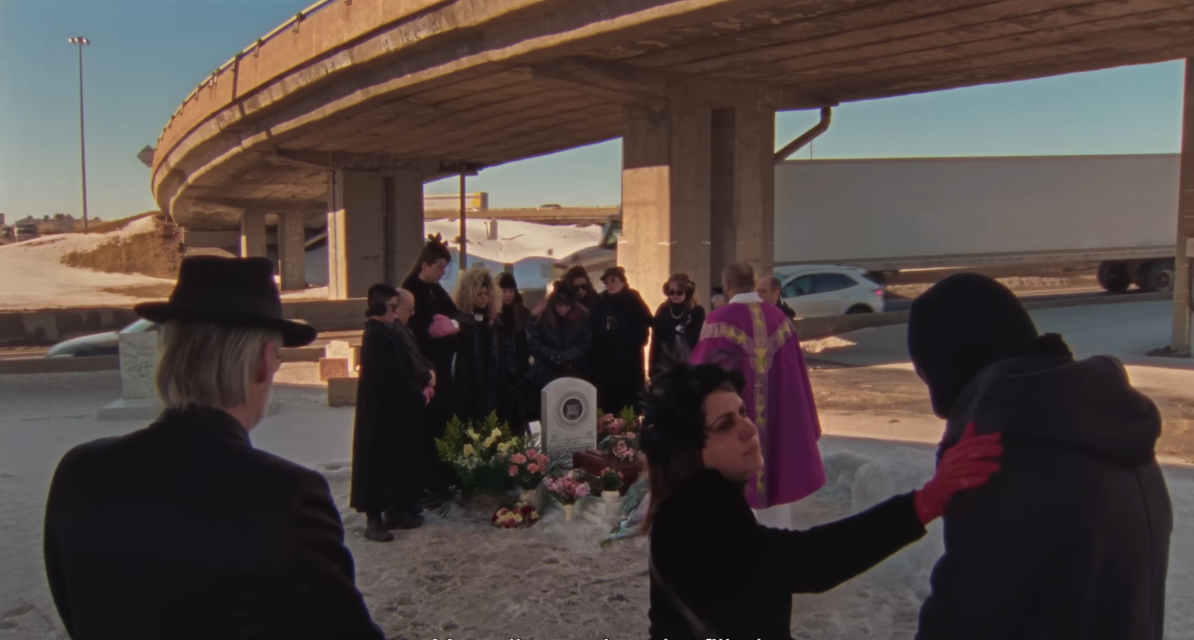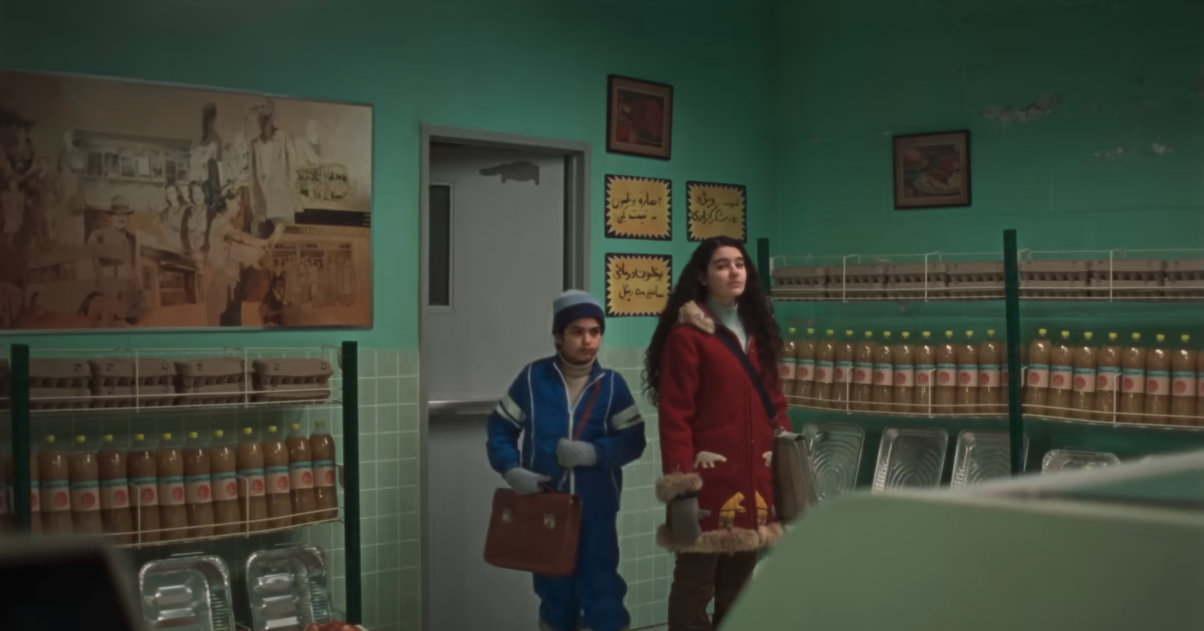Universal Language, dir. Matthew Rankin
A voluptuous turkey takes a bus across Canada to be united with its lover/butcher. Graveyards located in frozen no-man's-land concrete dividers between busy highways, with funerals tended to by a lacrimologist. Tim Hortons (Canada's version of Starbucks) reimagined as a Persian tea house. A briefcase forgotton on a frigid bench is enshrined as a tourist destination. A shop selling nothing but immaculate boxes of Kleenex, served by a bowtie-wearing tuxedo-clad retailer.

In the snow-blanketed Winnipeg of writer/director Matthew Rankin's Universal Language, Farsi is the city's first language. In fact, children have to glumly attend immersion classes for French. In a city that is less Canadian brutalist sprawl and more ancient Byzantine metropolis, Rankin unspools multiple absurd, surreal, funny mini-fables. Concrete walls and brick façades are photographed to look like ageless fortresses, in and around which the characters embark on odysseys that eventually converge.

Notably, this film is actually a quietly manuevered creative nonfiction / documentary piece about Rankin's own relationship with his late parents. Rankin plays himself (or rather, a version of himself who shares his name), travelling from Montreal to Winnipeg after quitting a government desk job and throwing away his wallet and flip phone. (The film is set in an unspecified era, but the televisions are chunky and low-res, and teenagers aren't glued to devices yet. It is also charmingly shot in 4:3 aspect ratio by Isabelle Stachtchenko on grainy film, and I enjoyed the retro lofi vibes.)
Rankin's journey home is one of the main narrative threads, the other being two sisters (aged 10 and 14, by my estimate) who voyage across Winnipeg looking for ways to obtain a banknote frozen in the ground. At first blush, this film registers as a homage to Wes Anderson, with its copious static wide shots, flat tableaus, and a precocious cast, but Rankin's aesthetics are closer to the grounded yet transcendent poetics of classic Iranian cinema than stylised form-over-function Hollywood whimsy.

The film is sprinked with understated comedy that kept the audience chuckling throughout the brisk 90 minutes. (This was the only film so far I saw at this year's SGIFF where I didn't check my watch before the credits.) Much of it is derived from children who have to solve adult problems, and are able to politely and firmly talk back to adults.
Importantly, Rankin never overplays his surrealist / absurdist hand, gently jumps back and forth in time so that the film earns its dream logic ending. (This is something that I can't say for recent arthouse films I've seen.) Universal Language is magical and delightful, and I hope it makes it to streamers because this film deserves to be loved by a wider audience.
Member discussion